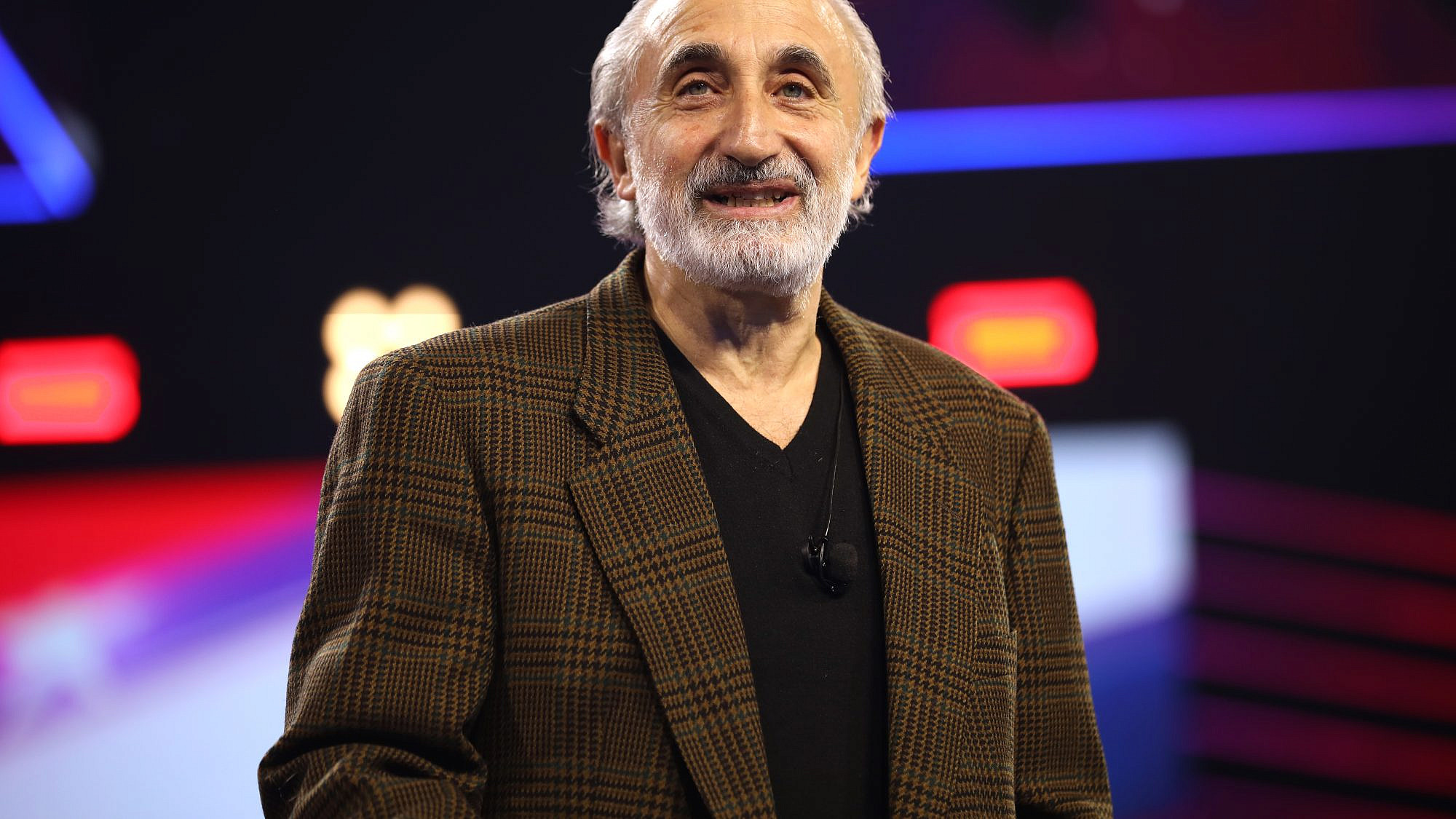self-declared “parasitologist of the human mind,” Gad Saad writes in a 2020 book that he is “seeking to inoculate people against a class of destructive ideas that destroy our capacity to reason.”
“If they go unchecked, parasitic idea pathogens, spawned by universities, eventually start to infect every aspect of our society,” wrote the marketing professor at Concordia University in Montreal.
In addition to being a widely-published scholar, Saad is also a fixture in the press, where he is cited not only as an expert on evolutionary behavioral sciences and economics but also as one of the Jewish state’s most prominent vocal supporters in the academy.
Saad spoke to JNS after a June speaking engagement for the Tafsik organization, in Toronto.
Saad had just made his 10th appearance on Joe Rogan’s podcast, which reportedly reaches some 14.5 million people. The professor has appeared on many other popular media shows and has nearly 1.5 million followers across several social media platforms, where his feeds mix documenting his food, satirical comments about current affairs and biting sarcasm of leftism.
For example, upon learning that the South African actress Charlize Theron decided as a parent that gender was something upon which her child could decide, Saad wrote on Twitter that “I don’t want my children to be restricted to viewing themselves as carbon-based.”
“This is why I am now immersing them in the fluidity of the Periodic Table,” he added. “I’ve asked them to look at all elements and decide which ones they self-identify with (in terms of their building blocks).”
“Let’s play ‘six degrees of Jew,’” he wrote in another post. “I give you a situation, and you try to blame it on the Yahood in six or fewer causal steps. Each time that we play the game, the best response will get retweeted from me (amplifying your voice). Game 1: You get into your Volvo in the morning but the battery is dead. Blame the Jews. Go!”
His humorous and satirical approach has led to “countless” emails from admirers noting their appreciation, he told JNS, and he became known as the “happy warrior,” which inspired him to pen the 2023 book, The Saad Truth About Happiness.
Cedar of Lebanon
Born in Beirut in 1964, Saad recalls vividly growing up in an antisemitic environment, in which everything from the rain to the economy and a downturn in tourism to a stomach bug was blamed on the Jews, he wrote in the 2020 book The Parasitic Mind: How Infectious Ideas Are Killing Common Sense.
When Gamal Abdel Nasser died in 1970, thousands of people took to the streets in an “angry procession,” chanting “death to the Jews.” Saad, just shy of his sixth birthday, recalls hiding in fear in his house, he wrote in Parasitic Mind.
When he was 10, his teacher asked the class what each student wanted to become as a grown-up. One student said, to applause, “a Jew killer.”
Saad’s family fled the Lebanese civil war and came to Canada in 1975. He recalls with great clarity the moment when the flight captain announced that the plane had left Lebanese airspace. His mother placed a Star of David necklace around his neck and told him that he could wear it proudly, without shame, and never again hide his identity, he wrote in the same book.
But 49 years later, Saad has mixed feelings about his home in Canada.
“Wow. I am increasingly feeling unsafe. I’m not at the point where I’m afraid to leave my house, but there are certainly neighborhoods that you want to avoid,” he told JNS. “There are certainly campuses in Montreal that are more problematic to be Jewish in general, and to be a high-profile, outspoken Jewish professional professor in particular.”
Canada is reaching a “tipping point,” Saad believes.
“We are seeing all the signs on the wall. When we left Lebanon, you didn’t have to question whether it was time to leave or not, because it was so past the tipping point that if you don’t leave, you’re going to die,” he said.
“The question is now, will we ever get to that? And Montreal? Well, we’re not there yet,” he added. “I can only see it getting worse. So I don’t know when that tipping point will be hit.”
Saad told JNS that he isn’t sure if that point will come in three years, five or more. “I certainly smell it coming,” he said.

‘Not worth it’
The professor advises people who hope to fight the tide of anti-Jewish hate to activate their “inner honey badger.”
Although the mammal is the size of a small dog, it is “the fiercest animal in the world,” Saad told JNS. “It is difficult for it to ever stand down, so other animals will simply do the calculus and say, ‘It’s not worth it for me to go against it.’”
“I’m not saying for you to be physically ferocious or violent. This is an ideological battle, so if there are certain principles that are well reasoned that you hold, and that you think you can articulate, you need to be a honey badger and defend those principles,” he said.
But if one doesn’t stand up for one’s values, and passes the buck to others, “then the bad ideas have a window of opportunity to flourish,” Saad added. “We all have a stake in this fight. We can all affect change within the small sphere of influence of our daily lives.”
‘Suicidal empathy’
Saad is working on a new book tentatively titled “Suicidal Empathy,” in which he plans to argue that empathy must be regulated.
Western leaders tend to “exhibit compassion in an orgiastic manner” and expect other nations to reciprocate that empathy, he told JNS. But in the Middle East, “if they sniff empathy or compassion, it is seen as a vulnerability and you are weak.”
Saad told JNS that Islamists use Western naiveté to their advantage and they plan to overtake the West by leveraging immigration and birth rates.
“I grew up in that world,” he told JNS. “I understand that language.”
“What shocks me to no end is when I see all these Western politicians exhibiting this cultural blindness,” he said. “They project exactly the values that are important in their society, and presume that others will understand them and read them as the same.”
When he discusses this detail of the Middle East with diplomats, they are “blown away,” he told JNS.
“It’s as if they’re running into a Martian, because literally, their brains can’t comprehend those realities,” he said.
























